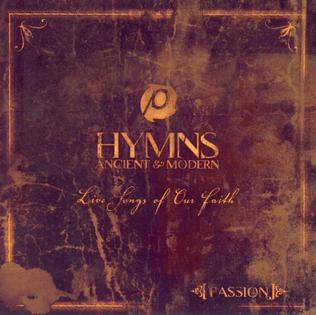Tonight we are beginning our look at the great hymns of the church. For this evening, we will trace the development of Anglican hymnody from the Jewish temple to our modern worship songs. One of the great figures in English hymnody, in a roundabout way, is John Hus (1369-1415). Hus was a priest in the city of Prague who came under the influence of John Wycliffe. Hus translated the liturgy and the bible into his native Czech. He advocated in giving the sacrament in both kinds to the laity and opposed the idea of Indulgences and purgatory. He also wrote hymns to be sung by the congregation in their native Czech language and to common melodies. This all occurred a century before Martin Luther and the Guttenberg Press. For his reforming efforts, John Hus was burned at the stake for heresy. His descendants are the Moravian Church who published the first hymnal for congregational worship in 1501, sixteen years prior to Luther’s 95 Theses.
On January 25, 1736, John and Charles Wesley, Anglican priests and the founders of the Methodist movement, were on a ship from England to Georgia. At this time, the Church of England only permitted the singing of metrical psalms and Biblical hymns such as the Magnificant. The ship encountered a great storm. While others panicked, the Wesleys found the Moravians singing their hymns. Upon their return to England, the Wesley attended a Moravian meeting house on Aldersgate Street on May 24, 1738, where these descendants of John Hus incorporated hymn singing in their worship service. It was there that John’s heart was “strangely warmed” and both brothers first knew God’s presence. From that day until his death, Charles Wesley, still a priest in the Church of England, would publish over 6,000 hymns based upon those hymns he heard from the Moravians. It was not until 1820, however, that Charles’ hymns were officially permitted to be sung in an Anglican worship service, and not until 1916 that the Episcopal Church officially published a hymnal with music.
Therefore if you enjoy singing hymns in church, it all goes back to a 15th-century Czech reformer whose descendants’ hymns caused the conversion of two Anglican priests. Tonight, we will look at Hus and Wesley and other people who influenced the development of our hymnody.
If you haven’t joined us before, we do have a few minor rules for our small group: 1) You can park in my driveway, the street, or the circular drive in front of the white brick house next door. 2) Please do not ring the bell or knock on the door, but simply come on in. 3) The only foodstuff you can bring is a bottle of wine to share. 4) Children are welcome. They can play upstairs or outside or join us for the discussion and singing. 5) You are welcome to bring guests.
Dinner begins at 6. The menu is club sandwiches. You can come to dinner late or skip dinner entirely. Our discussion and singing begins about 6:45. Although we have Prayer Books and hymnals, if you have a Prayer Book-Hymnal please bring it with you. Also, please bring a Bible. For this study, the KJV is preferred since that is the version our hymnists would have used. We will end with Compline at 8:00. My address is below.
Rejoice in the Lord, you righteous; *
Psalm 33:1-3
it is good for the just to sing praises.
Praise the Lord with the harp; *
play to him upon the psaltery and lyre.
Sing for him a new song; *
sound a fanfare with all your skill upon the trumpet.

